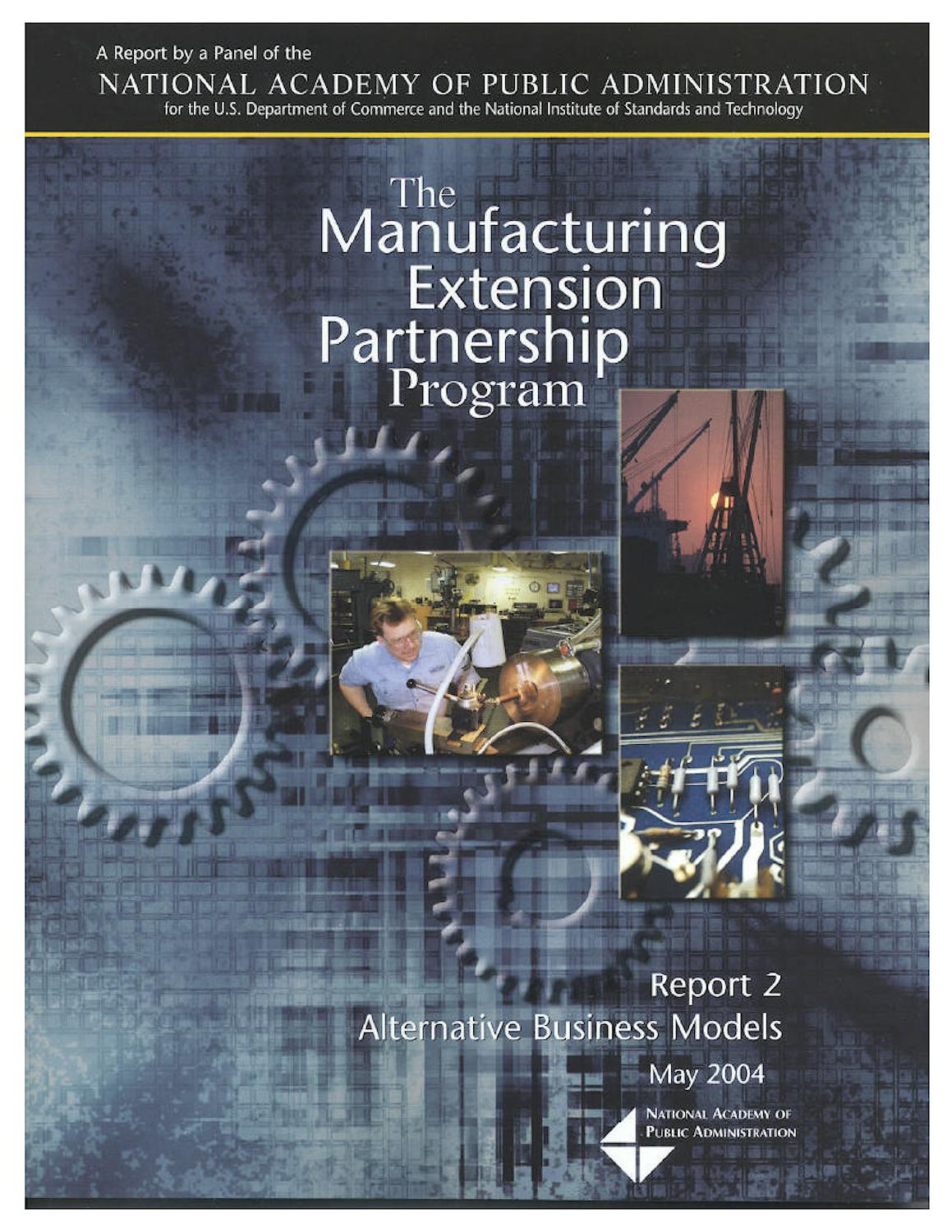
The Manufacturing Extension Partnership Program: Report 2, Alternative Business Models
As Phase I of this study concluded, the needs of U.S. small manufacturing enterprises (SMEs) have changed. The Panel believes the MEP Program has evolved to the point where it needs to consider how it can have a much broader impact on an industry that has suffered significant losses in jobs and business to foreign competitors.
While the Program has performed well delivering the services in its current model, the Panel believes a fundamental change in the mix of the types of services it provides as well as the structures for delivering them needs to be considered.
As the only federal program designed specifically to help small manufacturers, MEP is uniquely positioned to help create an infrastructure for supporting these firms as the U.S. economy undergoes an enormous economic transition. The Panel finds that the time is right for a change to the basic services and approach employed, including an expansion of technology diffusion as a basic function of the Program. The Panel also finds that aspects of the Program which have contributed to its achievements including its funding formula, performance measurement system, and structural changes should be revised to put the Program in a better position for a new approach to its mission.
Click the button below to view the View Study Report.
View ReportKey Findings
The extraordinary changes occurring in the manufacturing industry coupled with the tremendous opportunity presented by the profusion of technological innovations in the United States provide the bases for these findings. A national, integrated network, which provides technological solutions to the performance challenges facing small manufacturers, would be a tremendous national asset.
Recommendations
The Panel recommended to emphasize technology diffusion, product development, and supply chain integration services as basic services of the Program in addition to providing technical and business assistance to small manufacturers. They also thought it would be important to build an integrated national network of assistance for small manufacturers. They noted a need to improve the coordination and partnering by MEP headquarters with other organizations that assist small manufacturers. MEP should adopt some of the business practices used by other programs that operate federal and state/local partnerships. The panel also noted a need to improve the system-wide sharing of knowledge and information and the systems for measuring performance. Lastly, the panel recommended the Department of Commerce should consider aligning and integrating the various organizations within the Department that have manufacturing assistance responsibilities.